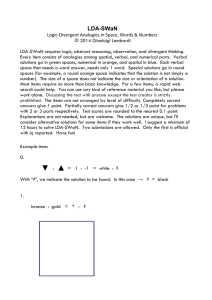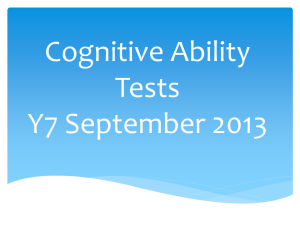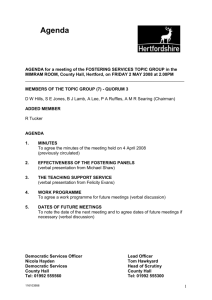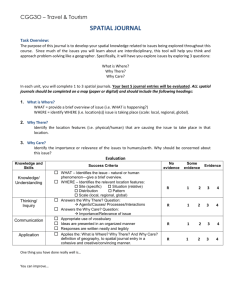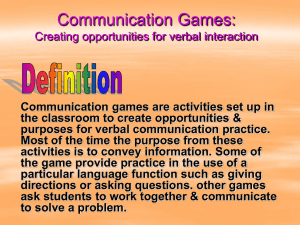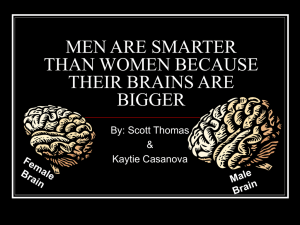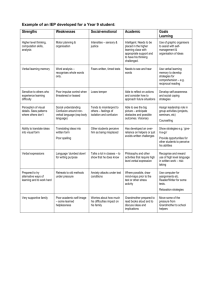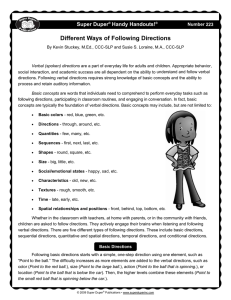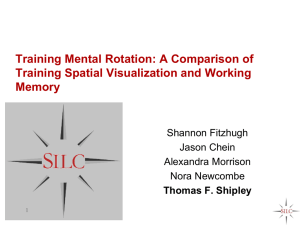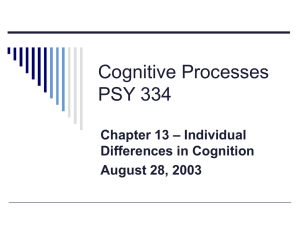Bunch and Lloyd
advertisement
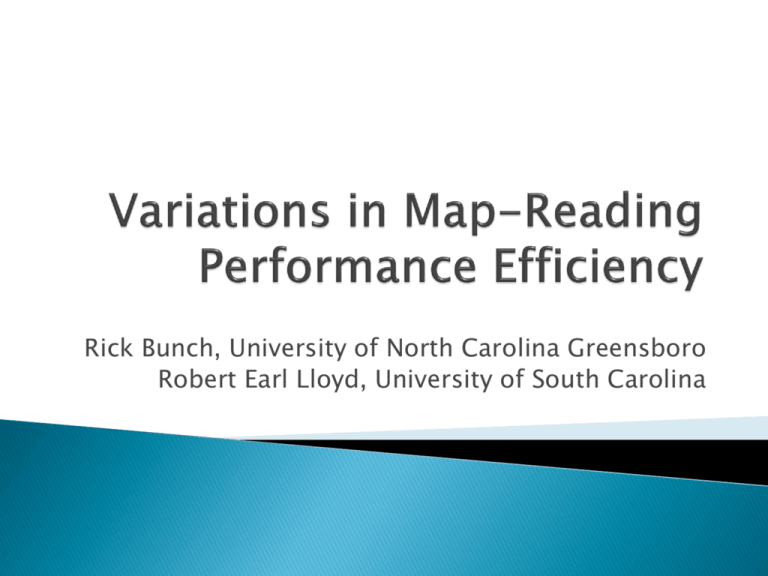
Rick Bunch, University of North Carolina Greensboro Robert Earl Lloyd, University of South Carolina Measure the performance efficiency of participants as they engage in map-reading tasks that require the processing of geographic information To identify the relationships between top-down and bottomup processes related to searching and recalling geographic information Accuracy and reaction times are frequently used as measures of success (performance efficiency) in cognitive experiments This study examine three factors that could influence performance: gender, memory, and brain asymmetry Data Gather Steps ◦ Measure second and fourth digits ◦ Bem Sex Role Inventory ◦ Spatial Working Memory Span Test (Computerized version of the Corsi Block Task) ◦ Verbal Working Memory Span Test Experiment ◦ Participants were randomly presented with state names for the 48 contiguous states of the U.S. and asked to identify each state on an unlabeled map Independent Explanation 2D/4D Ratio Recorded in millimeters Gender Femininity, Masculinity, Undifferentiated, Androgynous Spatial Working Memory Average of highest recalled objects for each round Verbal Working Memory Average of highest recalled letters for each round Area Area of each state Population Population of each state Distance Participants’ home state to state F = 17.3, P > F = 0.000 F = 15.5, P > F = 0.000 F = 5.8, P > F = 0.016 F = 0.6, P > F = 0.446 Gender revealed interesting differences Participants with high spatial AND Verbal scores had better performance 2D/4D ratio had mixed results Area of the state and distance from home state impacted performance
